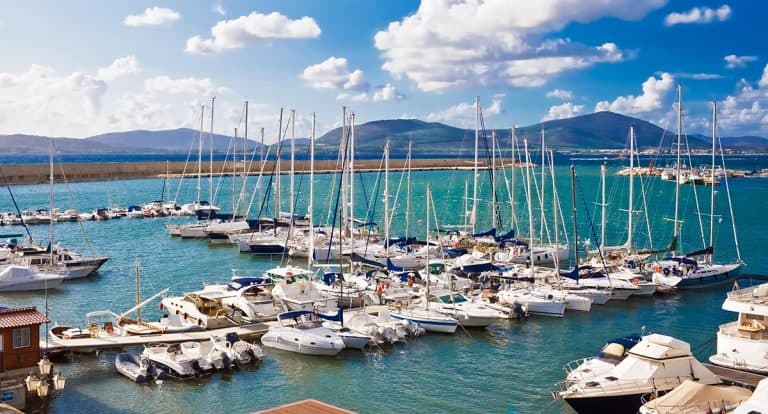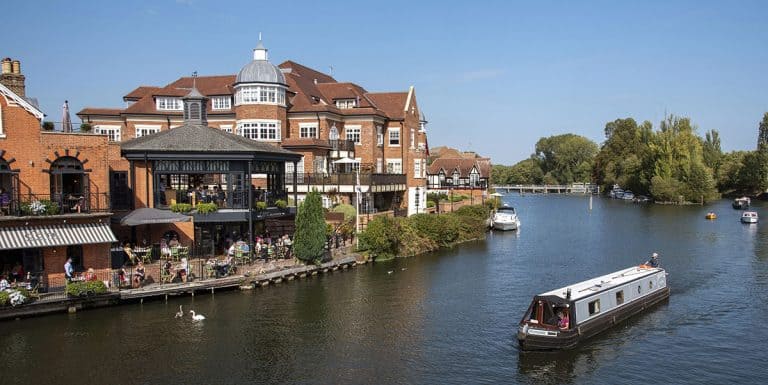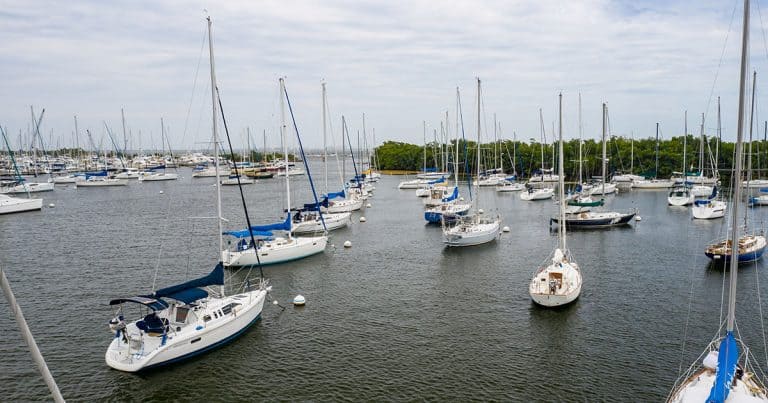Can You Live on a Boat in Florida?
The thought of waking up to the sound of waves lapping the side of your boat and seagulls flying overhead is likely enough for many people to consider trading their land-living lifestyle for a boat. This is not at all an unusual thought. It is estimated that thousands of people reside on their boats. However, there are no specific statistics regarding the exact number.
If already you are a resident of Florida, you likely have a strong love of the climate, water, and water vessels. You may be so enamored by the thought of spending all your time on the water that you have considered moving to a boat.
In short, you can live on a boat in Florida, but there are laws and rules in place that you need to abide by. While it may seem like a simple transition, there are varying laws in place regarding living on a boat.
In this article, you will learn about living on a boat in Florida, the rules related to this living arrangement, and any challenges you may face when making this decision.
Living on a Boat in Florida
Florida or any other coastal location seems like the perfect location to drop anchor and live on your boat. While this is a very real possibility, there are many laws in place to protect coastal marinas as well as boat owners themselves.
It is important to remember that not all boats may be conducive to living on them. Boats that people live on are referred to as liveaboard vessels. When a boat is referred to as a liveaboard boat, it is simply referring to an individual that has decided to turn their boat into a permanent place of residence.
Making your boat a place of residence can be simple enough, but there are several things you need to take into consideration before you make the switch:
- Duration: Choosing to live on a boat is a huge lifestyle decision that should not be entered into lightly. When you decide to live on a boat, you first need to determine how long you want the arrangement to last. Some people decide they want to live on a boat during the summer months, while others want to make it year-round.
If you are living on the boat year-round, you are likely going to be giving up your permanent residence on the land. When giving up your permanent residence, you are also going to be giving up many of your possessions or at least storing them because the boating lifestyle does not lend itself well to having a lot of material possessions.
- Address: Once you decide to make your boat a permanent residence, you need to think about how you will get your mail and other necessary deliveries. Remember, a floating home will typically not have an actual address or mailbox.
- Legality: Before you ultimately determine that you are going to give up the land life for the open water, you will need to check the legal aspect of your decision. While living on your boat may not seem like an issue, there are laws that you must abide by or face a hefty fine.
- Safety: Living in a boat may seem like a dream come true, but there are safety issues that you will need to factor into your decision. A boat is not as secure as a home in both its ability to keep trespassers away and to stand up to weather events.
To make sure you are safe living on a boat, it is wise to have a safety plan in place to ensure you will be able to move out of the path of severe weather. Not only will this protect you personally, but it will also likely protect your boat that has become your home.
Is It Legal?
There are many schools of thought when it comes to living on a boat instead of in a traditional home. While it is not necessarily illegal to live on a boat, some guidelines have been put in place to offer protection to both boaters and other residents.
Individuals that choose to live on a boat full time must consider these things:
- Anchoring rules: Many marinas have strict rules when it comes to where you can drop anchor for a long period. While they cannot tell you the length of time an anchor can be dropped, they can enforce the location of where the anchor is dropped. You cannot drop an anchor in a navigable channel, waterway, or mooring field.
- Mechanics of the boat: Not all boats are created equally, and this is especially important when considering the option of dropping anchor for a permanent residence. Most Florida laws will not allow you to claim a boat with a motor or steering capability as a permanent home. In practical terms that means your new home may not be protected from warrantless searches.
If you choose to drop your anchor in an illegal area, such as protected areas, you will be subject to fines that are imposed by the local Fish and Wildlife Conservation Commission (FWCC). The fines begin at $50 for a first offense and $250 for the third or any offense beyond.
What Type of Boat can I Live on?
You may be wondering what types of boats you can live on in Florida. Since there are restrictions, you will need to choose carefully. When looking for a liveaboard boat, there are three categories to explore: catamarans, trawlers, and houseboats.
There are a variety of sizes to choose from, so you will likely be able to find one that fits both your needs and budget:
- Catamaran: A catamaran is a multi-hulled boat, which provides a comfortable ride on the water, which makes it a popular choice for a residential boat. Not only is there space for multiple people, but it also provides some of the comforts of home.
- Trawler: This boat is typically used as a deep-sea fishing boat; however, the spacious hulls provide an ideal space for living—a lot of people like this option for the size, stability, and dual engine options. Not only are the features conducive to long term living, but the height of the boat is also beneficial, especially if you are traveling under low-level bridges.
- Houseboat: It is likely that when you think of living on a boat, the image that pops into your mind is the popular houseboat. You can likely picture the spacious deck above with a set of steps leading to the rather spacious living quarters.
Unlike other boats, houseboats are in a league of their own. Houseboats can be purchased pre-made, and many individuals have chosen to convert barges and other large crafts into houseboats. Because of this, the definition and appearance are going to vary.
No matter which option you choose to use as a houseboat, you will likely find something that fits your exact needs and budget. It is important to know that the more bells and whistles you add to your craft, the more expensive it will be.
Final Thoughts
Living on the water in a boat is a dream come true for many people. If this describes you, be sure to research to ensure you are following all the state and local guidelines that have been put in place. If you choose to ignore the laws and guidelines, you will be subject to a fine.






